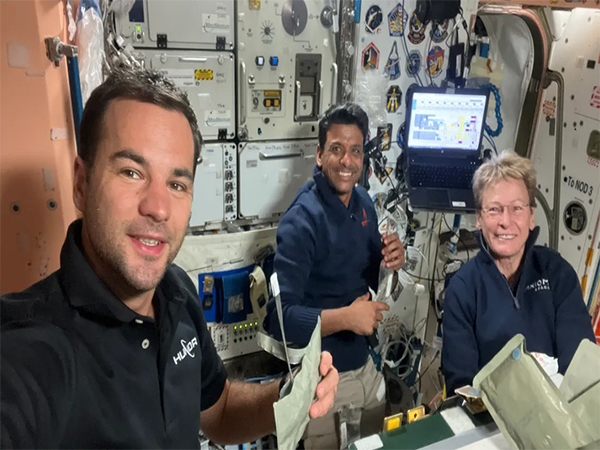Pioneering Scientific Research: Indian Astronaut's Landmark Experiments on the ISS
Group Captain Shubhanshu Shukla, the first Indian astranout on ISS, spearheads crucial biomedical research on muscle loss in microgravity during Axiom 4 Mission. The mission also advances cancer therapy, radiation protection, and innovations in AI-driven space medicine, potentially reshaping health care on Earth.

- Country:
- United States
Group Captain Shubhanshu Shukla, the pioneering Indian astronaut aboard the International Space Station (ISS), is spearheading significant biomedical experiments focusing on muscle loss in microgravity. On the sixth day of the Axiom 4 Mission, Shukla expertly navigated the Life Sciences Glovebox (LSG) to delve into myogenesis, a crucial study on skeletal muscle dysfunction caused by space conditions.
The Axiom Space blog underscores the far-reaching impact of this research. It promises to contribute to innovative therapies targeting muscle atrophy during extended space missions and may also inspire novel treatments for muscle-wasting diseases on Earth, especially those related to ageing or immobility. The detailed operations by 'Shux,' as he is affectionately known, are expected to unlock molecular pathways critical for maintaining muscle health.
Meanwhile, the Ax-4 crew, including Commander Peggy Whitson and Mission Specialists Slawosz Uznanski-Wisniewski and Tibor Kapu, have been actively engaged in complementary studies. Commander Whitson's efforts in the Cancer in LEO project, in collaboration with the Sanford Stem Cell Institute, are setting the stage for clinical trials of Rebecsinib, a promising cancer drug. This study examines tumor organoids' behavior in microgravity, potentially leading to groundbreaking cancer treatments on Earth.
Beyond these medical breakthroughs, Kapu's work on radiation levels aboard the station, combined with the innovative VITAPRIC experiment and the AI-powered Telemetric Health study, signifies a new frontier in space medicine and remote health monitoring. Notably, the PhotonGrav brain-computer interface project is pioneering thought-based control systems that could aid spacecraft operations and neurorehabilitation technologies. This aligns with Shukla's earlier contributions to the space microalgae experiment, focusing on sustainable food sources for future long-term missions.
Since Group Captain Shukla's historic arrival at the ISS on June 26, following the Axiom Mission 4 launch from NASA's Kennedy Space Center, the team has been committed to advancing research that could redefine future space exploration and enhance life on Earth. The mission is currently anticipated to extend over a two-week period, marking a significant milestone in international collaboration and scientific achievement.
(With inputs from agencies.)










